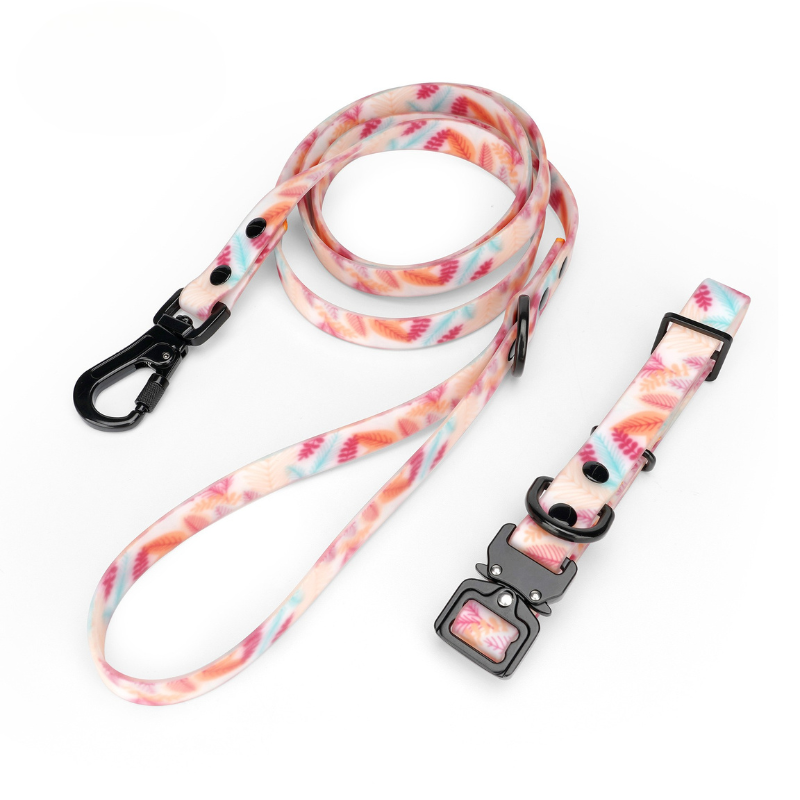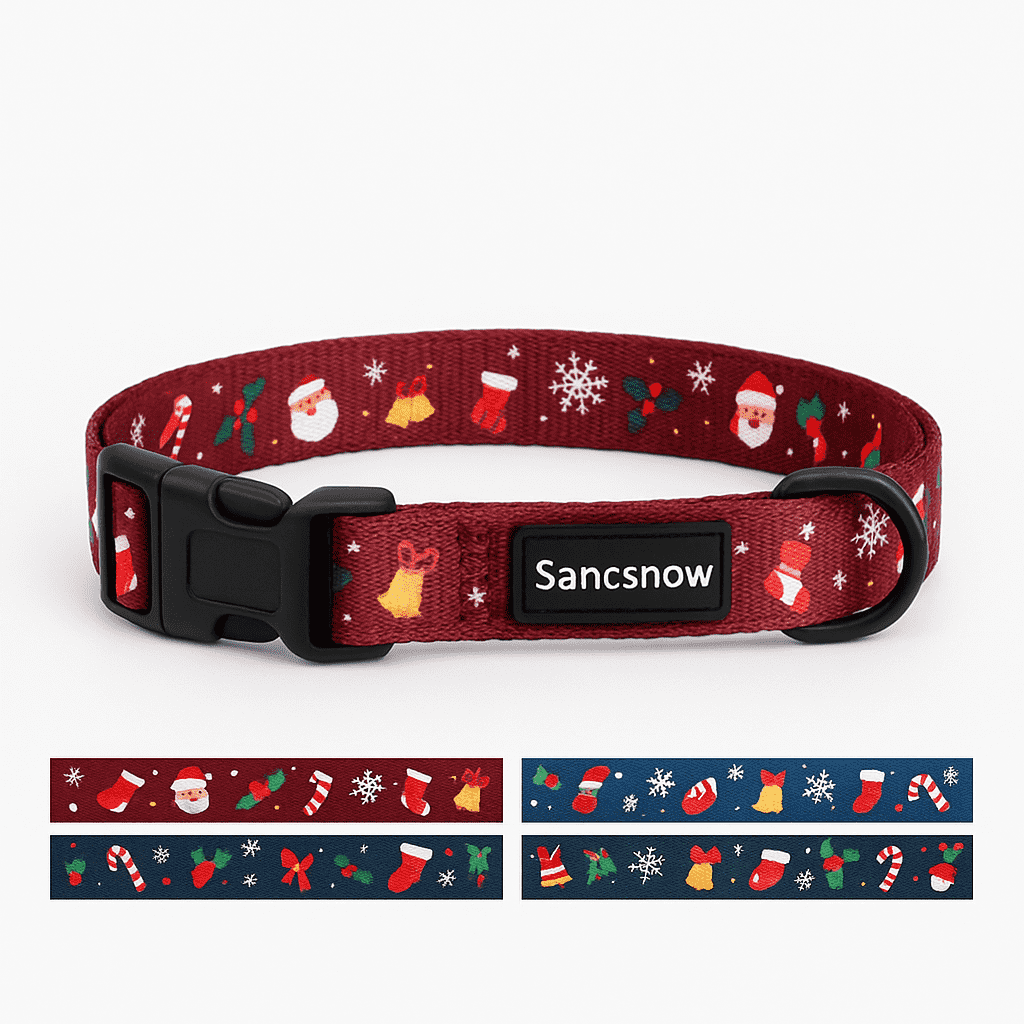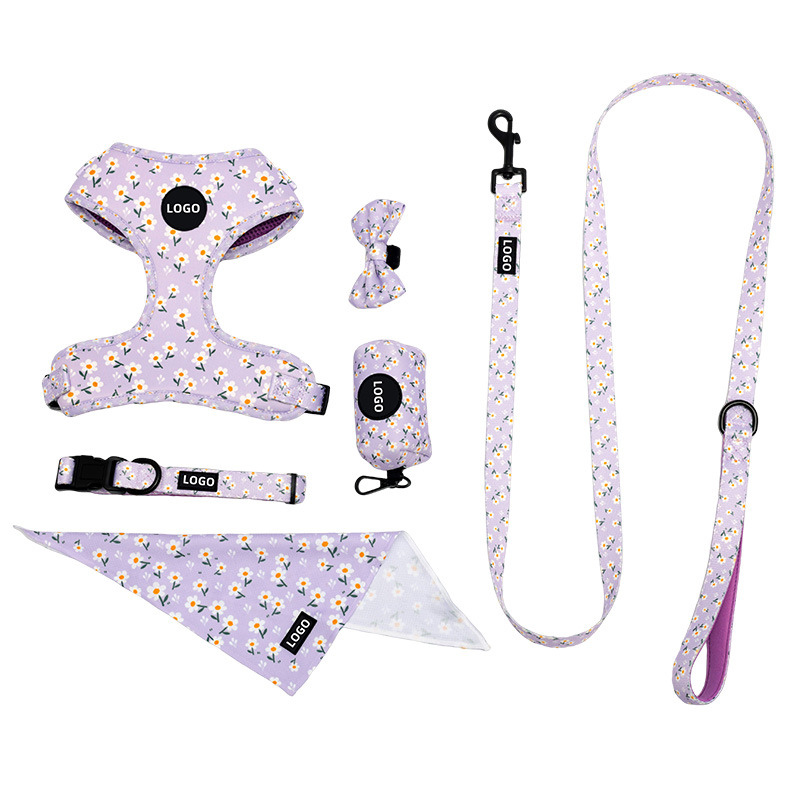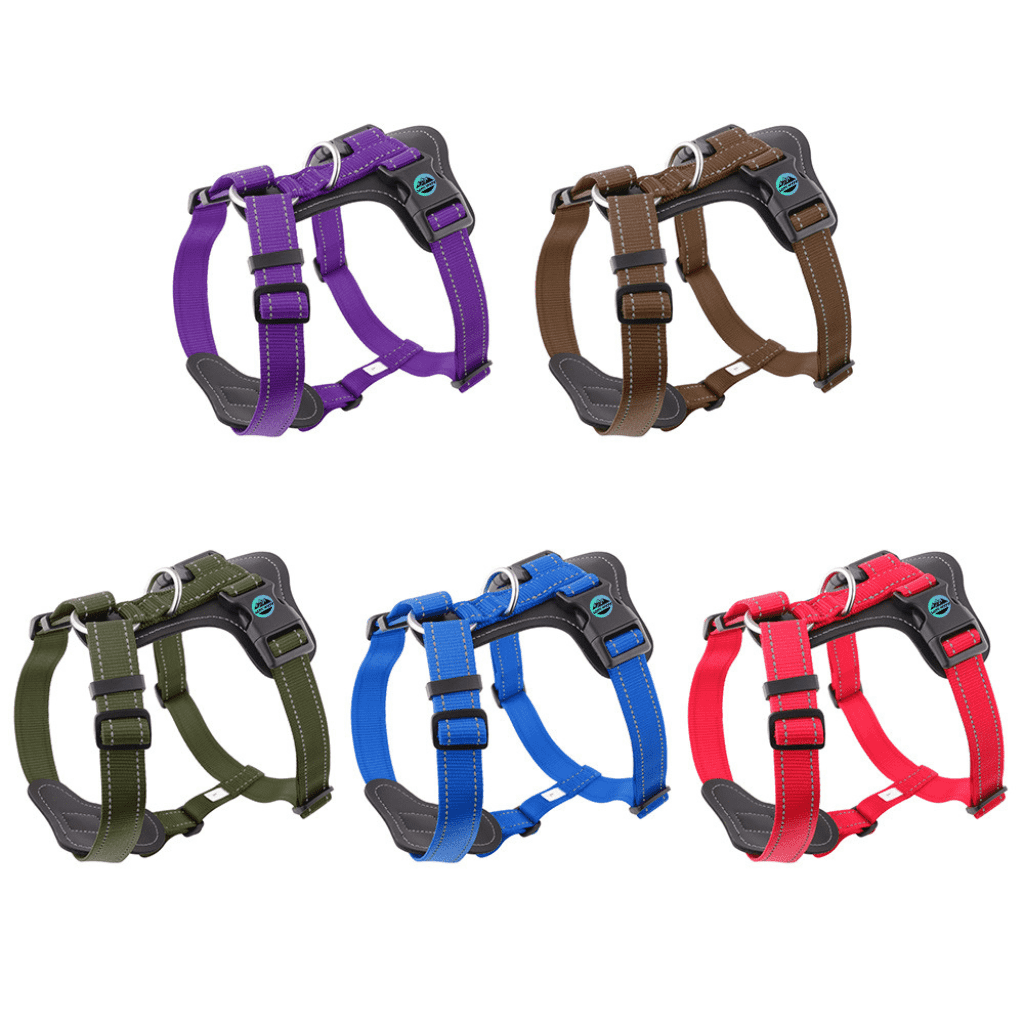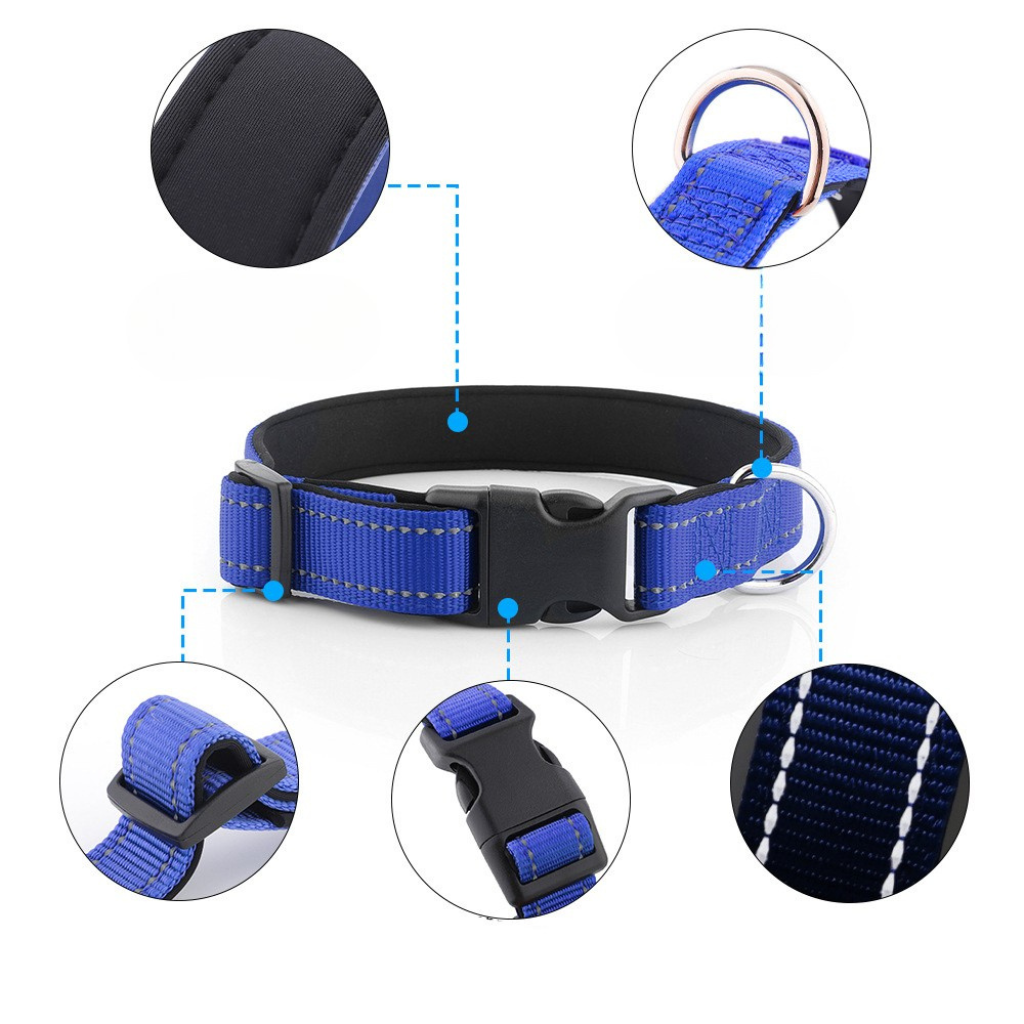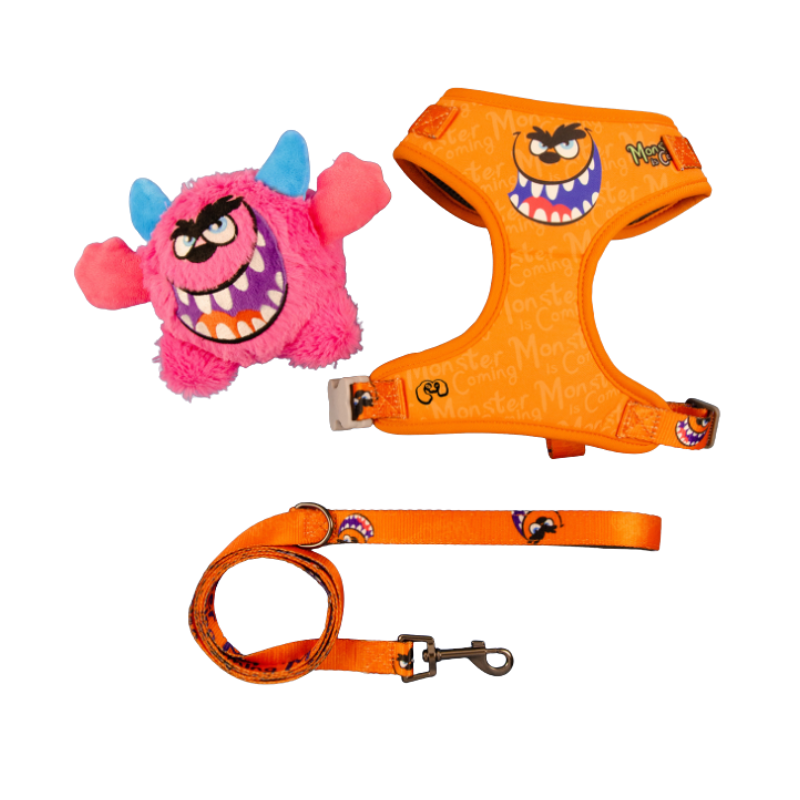What Makes Nylon Stand Out?
Nylon is a synthetic polymer known for its impressive strength, durability, and flexibility. In the pet industry, it has become a go-to material for products such as collars, leashes, harnesses, and even carriers. But what makes nylon particularly suitable for pet accessories?
- Tensile Strength: Nylon fibers are tough and resistant to pulling and pressure, making them ideal for pets that pull or chew.
- Flexibility: Despite being strong, nylon is soft to the touch and conforms well to a pet’s body, offering comfort.
- Color Retention: It holds dyes and printing exceptionally well, making it ideal for colorful, branded, or patterned designs.
- Weather Resistance: Nylon resists moisture, dries quickly, and does not degrade easily under UV light or in humid environments.
These properties make nylon a material that combines functionality, aesthetics, and longevity—three key factors wholesale buyers care about.
Compared to Other Materials: Why Nylon Wins
Many materials are used in pet product manufacturing. Here’s how nylon compares with the most common alternatives:
- Nylon vs. Polyester: Polyester looks similar but is less durable, more prone to fraying, and generally stiffer. Nylon has superior strength and better abrasion resistance, which means longer lifespan and fewer replacements.
- Nylon vs. Cotton: Cotton is soft but weak. It absorbs water, takes a long time to dry, and can develop odors or mildew. Nylon is far more suitable for active or outdoor pets.
- Nylon vs. Leather: Leather is visually premium but requires high maintenance. It cracks when wet, stiffens over time, and limits customization options. Nylon offers a lightweight, affordable, and easy-care alternative.
- Nylon vs. PVC/TPU-coated webbing: PVC is waterproof and stylish but less breathable and often rigid. Nylon is more flexible and comfortable for extended wear.
For businesses looking for a balance of durability, comfort, cost, and branding potential, nylon is consistently the best-value option.
Real-World Applications: Where Nylon Excels
Let’s look at some usage scenarios where nylon brings clear advantages:
- Dog Training Schools: Dogs of all sizes and temperaments pull on leashes, chew collars, or drag harnesses through rough environments. Nylon gear holds up under stress without tearing or losing shape.
- Outdoor Pet Gear Brands: Nylon is water-resistant and quick-drying, making it perfect for hiking leashes, adventure harnesses, and collars for swimming dogs.
- Pet Groomers and Boarding Facilities: Nylon is easy to clean and sanitize between uses. It resists fur buildup, can be machine-washed, and maintains structure and color even with frequent cleaning.
- Custom Pet Accessory Brands: Need reflective strips, logos, printed patterns, or a wide color palette? Nylon supports a high degree of customization with excellent finish quality.
Whether you’re serving value-driven retailers or premium pet lifestyle brands, nylon offers the flexibility and performance required across market segments.
Common Pitfall: Not All “Nylon” Products Are Real Nylon
One of the most overlooked risks in sourcing is material substitution. Many products in the market are labeled as “nylon” but are actually made of polyester or mixed synthetic fibers. These imitations are cheaper to produce and visually similar, but they fail quickly under use.
For example, if you come across a dog leash priced well below the market average—say $0.80 per unit—it is almost certainly not made of genuine nylon. Real nylon yarn has a higher raw cost, and when combined with proper weaving and finishing, the total material cost makes ultra-low prices impossible.
Some telltale signs of fake nylon:
- Feels rough or stiff
- Poor color saturation or fading after light washing
- Frays easily at the edges
- Melts rather than shrinks when exposed to heat (a key fabric test)
Choosing true nylon from reliable suppliers protects your business from customer complaints, product returns, and damage to your brand reputation.
Choose Materials That Support Your Business, Not Just Your Price Point
In competitive pet product markets, cutting costs by using inferior materials often backfires. Instead, invest in materials like nylon that support performance, branding, and customer satisfaction.
Choosing nylon is not just a technical decision—it’s a strategic one. It shows your buyers and end users that you care about quality, durability, and consistency. And that’s what builds lasting business relationships.

